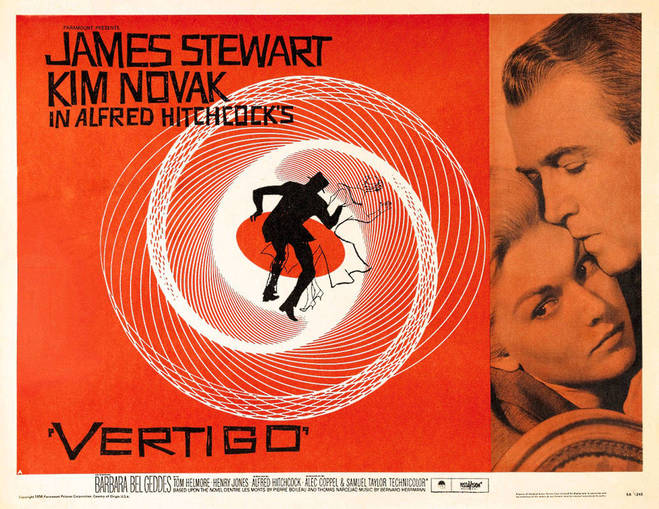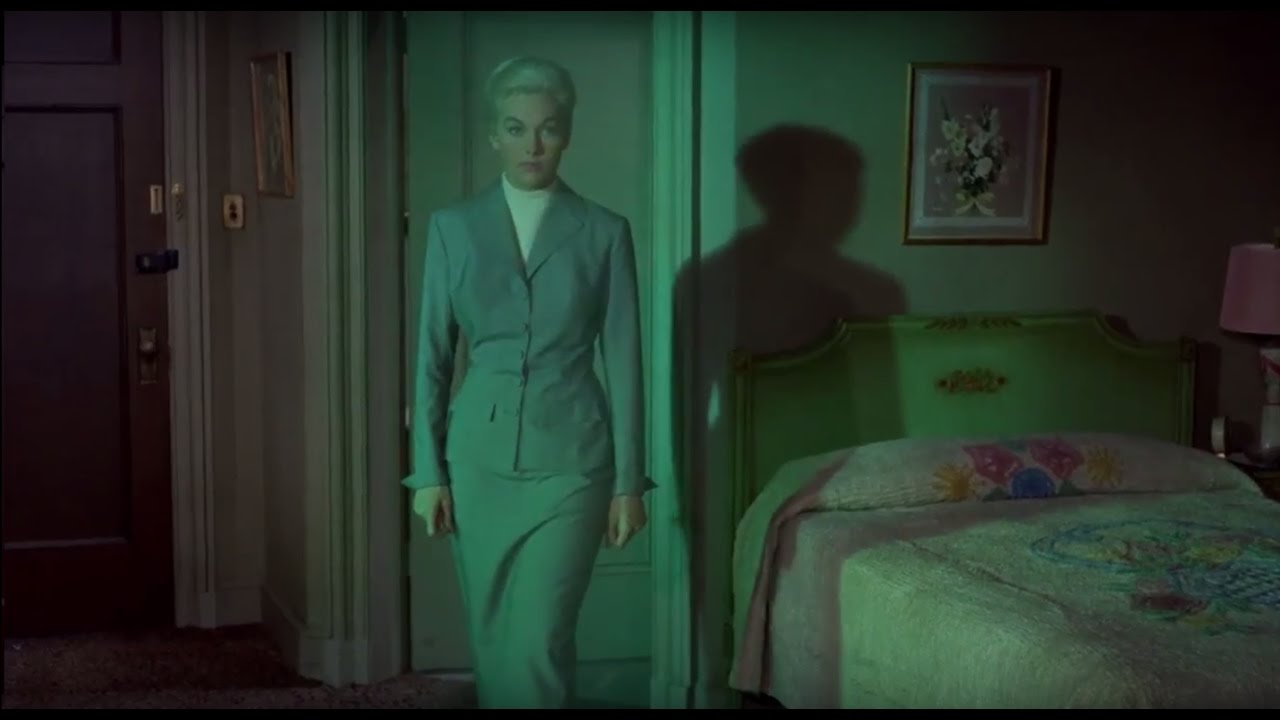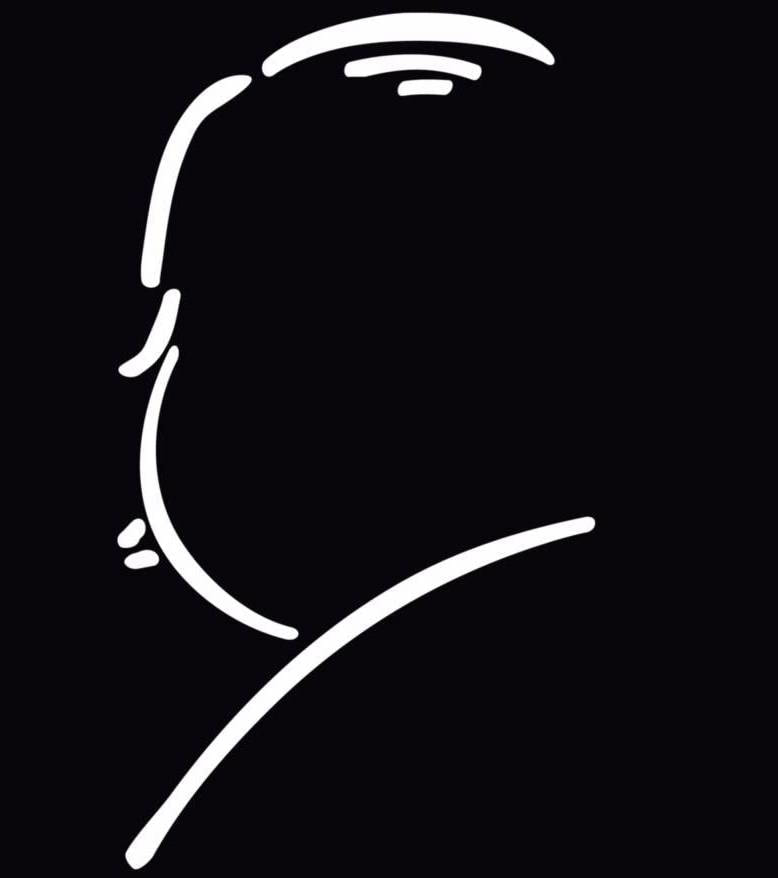|
The following Forum topics for Alfred Hitchcock’s Vertigo are optional. You may want to think about them or answer them on your own, or you can feel free to make a post here. That said, if you were to make a thoughtful post, considered post, it would become part of the dialogue of the class, and as such would affect your participation mark positively. To reiterate, however: there is no penalty for not posting!
As I mentioned last week in our discussion of the novel Vertigo, I find fairly compelling evidence that Pierre Boileau and Thomas Narcejac are echoing in their novel the themes and artistic concerns of Edgar Allan Poe’s disturbing short story, “Ligeia,” published over 100 years before the novel’s publication. I add “artistic concerns” to the usual general “themes” because Poe’s story (like “The Fall of the House of Usher”) is at least in part about the sensibility (sensitivity, obsessiveness, etc.) of the artist as an observer of his world. Notice that I do not say “his or her” (or “their”), because in novel, film, and Poe story, the artist is very much a “he,” working with inspiration by a subject that is very much a “she,” whether real or idealized. In other words, gender, and ideals around it, are key to the discussion here. Read Poe’s “Ligeia” very closely, with an eye to tracing at least one of the following details throughout. Try to come up with a statement—in your own words, but with a passage or two to support i—to the significance of this detail to the story’s overall meaning: a) setting, architecture, “set design,” theatricality; b) eyes, vision, seeing and not-seeing; c) memory, remembrance, forgetting; d) artistic sensibilities: passion, inspiration, mania, obsession, depression, and dejection; e) the battle of the wills (as in willpower), and power and oppressive control more generally. The above themes are key not only to Poe’s story (and work more generally), but also to the Gothic tradition in the U.S. Remember that we are working on a developing sense of this tradition, and how in this case it might have echoed forward from Poe to influence Narcejac and Boileau, and Hitchcock. FORUM (Optional): Choose one of the following topics. Write your opening forum post on a single, specific detail with a clear, well supported thesis, in 250 words or fewer. The word count includes any quotations you might draw from the text(s). Read all responses prior to yours; make sure that your response adds to the discussion that is already underway. If you do respond on the site, indicate the topic number you chose. Indicate italics in all caps, e.g.: VERTIGO. Topic 1—Idealization: Vertigo (novel and film) and “Ligeia” feature female characters who are so idealized they (arguably) become monstrous. Compare/contrast the character Ligeia to the character Madeleine, in either the film or the novel (not both). Base your comparison/contrast on the single most revealing characteristic about the character, or what she represents. Topic 2—Dreams: Compare the role or significance of dreams in “Ligeia” and Hitchcock’s Vertigo. What key similarity can you draw from what these dreams reveal, or the themes they encourage us to trace in these works? Topic 3—Allusions and Influences: Discuss the degree to which the novel and film draw from key original themes found in Poe’s “Ligeia.” Single out one key theme, issue, or concern from the story and discuss its importance to film and novel.
6 Comments
Respond to one of the following two questions. Develop a clear line of analysis and point of view. Integrate quotes from at least two Humanities texts we have discussed this semester into your response. Back up your argument with plenty of examples from VERTIGO. Please use the questions as jumping off points and don't try to cover everything in them. Focus on what interests you most in the film. As always, please tell us something we didn't already know! Write as much as you wish, but note that it would probably be difficult to respond in anything less than 200-250 words. Pay attention to what your peers' have observed before you, so as to ensure that the conversation is advancing. You may have until Thursday before class to complete your response. For reminder of the character names, see this link: https://www.imdb.com/title/tt0052357/. Good luck!
1) How does VERTIGO illustrate, complicate, or challenge Riviere and Grosz' idea of "womanliness as masquerade"? For Riviere, there is no "essence" to womanliness. Instead, the qualities stereotypically associated with femininity-- such as passivity, coyness, and appearance--are a "lure" and a "mask" to capture and deceive the patriarchal male gaze. Similarly, for Grosz, under patriarchy, there are socially constructed subject positions for heterosexual "masculine" and "feminine" desire. The man "exalts" the woman by placing her on a pedestal and acts as her knight in shining armor. The woman, who adopts all of the accessories of femininity (centered around appearance) cooly waits for the man to woo her. According to Grosz, however, the man projects his own narcissism onto his object of desire (the woman who is actually interchangeable). The woman, by contrast, who superficially seems to have all the independence associated with narcissism, is actually in the relatively powerless position of object rather than subject. She is dependent on the man's desire for her own self-esteem. Meanwhile, the man often "splits" woman into the angelic "ego-ideal" that he rescues and protects (again, serving his own narcissism) and the debased "whore," on whom he can project his socially unacceptable desires. Woman is coded as "being the phallus" (for the man) while the man is coded as "having the phallus" (to offer the woman). From this perspective, since no one can actually be or have the symbolic phallus (it's always a performance), and the power dynamic between the masculine and feminine positions is so imbalanced, it's actually inaccurate to even speak of heterosexual "relationships" under patriarchy. As Lacan (in)famously wrote; "there is no sexual relation." In what ways does VERTIGO illustrate aspects of Riviere and Grosz' arguments about femininity, masculinity, and desire? In what ways might it also challenge them? Your are encouraged to embrace complexity in your response. Please feel free, as you employ each text, to push them forward in new directions. 2) What is the relationship between loss, death, and desire in VERTIGO? From a psychoanalytic perspective, desire is structured by loss. This includes the loss of our earliest object-choices, which we overcome only imperfectly through the resolution of the Oedipus Complex. As Edmondson points out, in love we are always looking for what we fantasize that we once had, or believe that we should have had, in our childhood. Throughout our lives, as Freud notes, "every object-finding is really a re-finding." With loss, an object often gains new and powerful qualities that we did not notice when we actually had it. The object, in a sense, only becomes real after we no longer have access to it. Then, it is only after a painful period of mourning, where we detach our libido from a lost object, that can we love another. When we fail to give up what we have lost--when we cling to it in our psyche even to the point that it starts to persecute us--mourning fails and becomes melancholia. The phenomenon of loss, and our responses to it, are also conditioned by psychic time, where past-present-present future, as Loewald observes, do not move forward in a linear fashion but continually shape and reshape each other. In general, no matter how much we search after an object that we believe will complete our sense of lack--in everything from consumer objects, to careers, to relationships--we are never able to find the one that fully satisfies our desire. Lack therefore actually serves to sustain desire; it keeps it moving. Death, the ultimate loss, may then appear as the most coveted object of desire; the only way that desire could ever fully be satisfied. On an unconcious level, according to the concept of death drive, we may be driven by a compulsion to repeat our earliest failures and pulled towards the lifelessness of an archaic past. Death, like the experience of Vertigo, both frightens and fascinates us. In what ways does VERTIGO treat the relationship between loss, desire, and death? |
INSTRUCTIONSPlease respond in the Comments section. To see this section, just click the red "comments" line). To create a new response, use the "Leave a Reply" box. |





